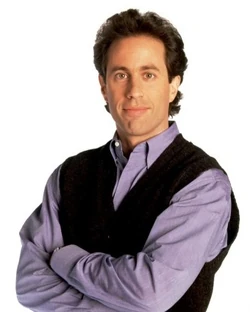I was recently listening to a podcast called The College Info Geek and the episode was titled "The Best Thing You Can Do for Your Productivity." So you can see where I got the title for this piece from. The host of the podcast, Thomas Frank, was interviewing Christ Bailey, author of the book The Productivity Project and of the blog A Life of Productivity. Although they discussed a lot of interesting ideas about ideas about productivity, they surprisingly did not actually say what was the best thing you could do for your productivity. Chris Bailey kept on saying that certain things were one of the best things you could do for your productivity. The basic theme was that you need to be intentional about what you do, so that might be the takeaway from that podcast episode.
But it made me think about the same question. What is the best thing you can do. Personally, I think it's this three part process:
1. Figure out what your most important goal is.
2. Design a habit that is doable every day or as often as possible that will take you ever closer to that goal.
3. Do that habit every day (or as often as possible).
Most
goals that are any good are difficult enough that there's a chance that
you might not do them. Some even seem impossible. For this reason,
worthy goals are only accomplished through systematic and sustained
effort. In fact, I think the most important part is the system part.
What is a system? I would define a system as a plan, designed
beforehand, for dealing with a complex or recurring problem. Trying to
accomplish a goal has a lot in common with trying to solve a problem. In
fact, you could consider the two things to be effectively the same
thing. This allows you to use tools for both (problem solving and goal
accomplishing) when faced with either a goal or a problem
Here's
an example. I want to be a writer. In fact, at this point you could say
that I am a writer, because I write often on this blog and on Quora.
But I have bigger goals than that. I want to eventually write a book.
This is a big and pretty challenging goal, but when I decided it I also
decided that I was going to do things that would take me toward that
goal a little bit every time I did them. That's why I started writing on
this blog after not doing it for three years. This is not something
that I do every day, but I'm doing it at a sustainable pace (a bit less
than one blog post per week). Then I started writing on Quora with a
similar purpose (and also to help grow the reach of my blog). I write a
lot more often on Quora. Either way, the point is the same. Most people
observing me would agree that I'm improving as a writer, which is likely
taking me closer to my goal of eventually writing a book.
One
last point: This "thing" or strategy that you can do for your
productivity is not really original to me. In fact, it is basically what
is commonly known as the Seinfeld method, made famous by Jerry
Seinfeld, who would write an X on his calendar every day that he wrote
some comedy. Thanks, Mr Seinfeld. Great idea.
